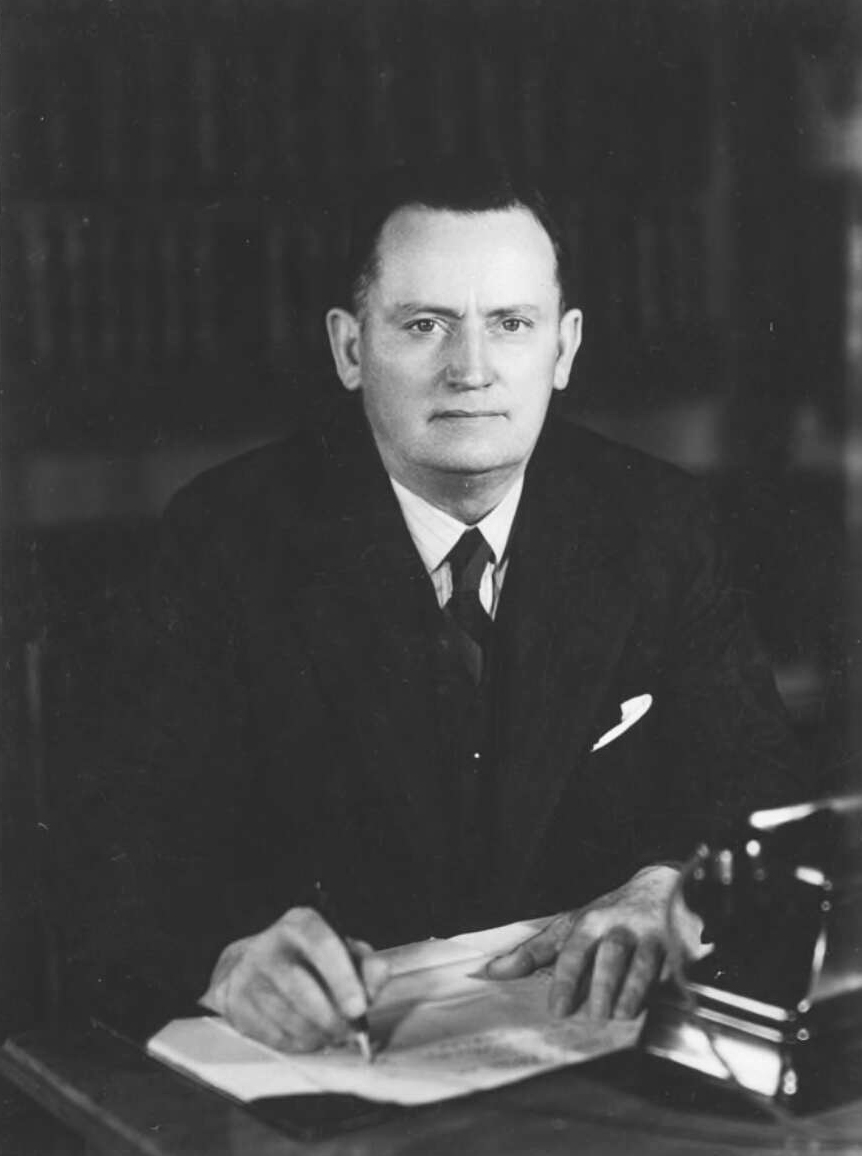Forde, Francis (1890-1983), was an Australian politician who briefly served as prime minister in July 1945. He took office after the death of Prime Minister John Joseph Curtin. Forde served only eight days as prime minister. He was a member of the Australian Labor Party, a party that grew out of Australia’s labor movement of the late 1800’s.
Early life and entry into politics.
Francis Michael Forde was born to Irish immigrants in Mitchell, Queensland, on July 18, 1890. His father, John Forde, was a railway worker. His mother was Ellen Quirk Forde. Francis, also known as Frank, attended primary school in Mitchell and then went to what is now St. Mary’s College, a Roman Catholic elementary and secondary school for boys in Toowoomba. 
After he finished his schooling, Forde worked as a telegraph operator in the post office in Brisbane. In 1914, he was transferred to the Rockhampton post office, where he served as assistant to the district engineer.
In 1915, Forde joined the Australian Labor Party (ALP). He won election to Queensland’s Legislative Assembly, the lower house of the state’s parliament. He resigned his seat in 1922 to run for federal Parliament. He won the seat representing Capricornia, the electoral division that includes Rockhampton. Forde held the Capricornia seat until 1946.
On Feb. 24, 1925, Forde married Veronica Catherine O’Reilly (1894-1967), known as Vera, in her home town of Wagga Wagga, New South Wales. The couple had three daughters and a son. Mary was born in 1928, Mercia was born in 1930, Claire was born in 1932, and Francis Gerard, called Gerard or Gerry, was born in 1935. Gerard Forde became a lawyer. His wife, Leneen Kavanagh Forde, served as governor of Queensland from 1992 to 1997.
Federal Parliament.
Frank Forde worked closely with ALP Prime Minister James Scullin during the Great Depression, a worldwide economic slump that began in 1929. From 1929 to 1931, Forde served as assistant minister for trade and customs. He became minister for trade and customs in 1931 and served until the following year. In 1930 and 1931, he also served as acting minister for markets and transport. During this period, Forde promoted a program of tax increases to counteract the effects of the Depression. In December 1931, the United Australia Party (UAP) defeated Scullin’s ALP in a general election.
In early 1932, the ALP elected Forde as its deputy leader in Parliament. Forde served as deputy leader of the opposition while the UAP and, later, the Country Party controlled Australia’s government. As deputy Labor leader, Forde worked to unify the ALP, which had split into several divisions.
Scullin resigned as head of the ALP in 1935. Many people expected Forde, his deputy, to replace him. However, at the party elections, John Curtin beat Forde by a single vote. Curtin became ALP leader, and Forde remained deputy leader.
In October 1940, during World War II, Forde joined the new Advisory War Council. The council, formed by Prime Minister Robert Menzies, sought to include members of all the major political parties in decisions about Australia’s participation in the war.
In August 1941, Menzies, who led the UAP, resigned as prime minister. Country Party leader Arthur Fadden briefly served as his replacement but quickly lost support. Fadden resigned in October, and Australia’s governor general asked Curtin to form a new government. In Curtin’s government, Forde became deputy prime minister as well as minister for the army. Curtin also selected Forde to serve on his War Cabinet, a group of Cabinet members who advised him on wartime matters.
Prime minister.
Curtin’s health worsened in the early 1940’s, and Forde assumed Curtin’s duties while Curtin was ill. Forde served as acting prime minister several times, once for a three-month period after Curtin had a heart attack in 1944. Curtin died on July 5, 1945. The following day, Forde took over the position of prime minister. On July 12, the ALP selected Ben Chifley as its new party leader and, therefore, as prime minister. Chifley was sworn in on July 13. Forde again became deputy Labor leader and deputy prime minister.
Later political career.
In the 1946 election, Forde lost the parliamentary seat he had held since 1922. Chifley then appointed him to the diplomatic post of high commissioner to Canada. Forde held the post until 1953.
In March 1955, Forde won a by-election (special election held to fill an empty seat) to return to the Queensland Legislative Assembly. He represented Flinders until 1957, when he lost the seat in a state election. Forde then retired to St. Lucia, an area in Brisbane. He died in Brisbane on Jan. 28, 1983.
